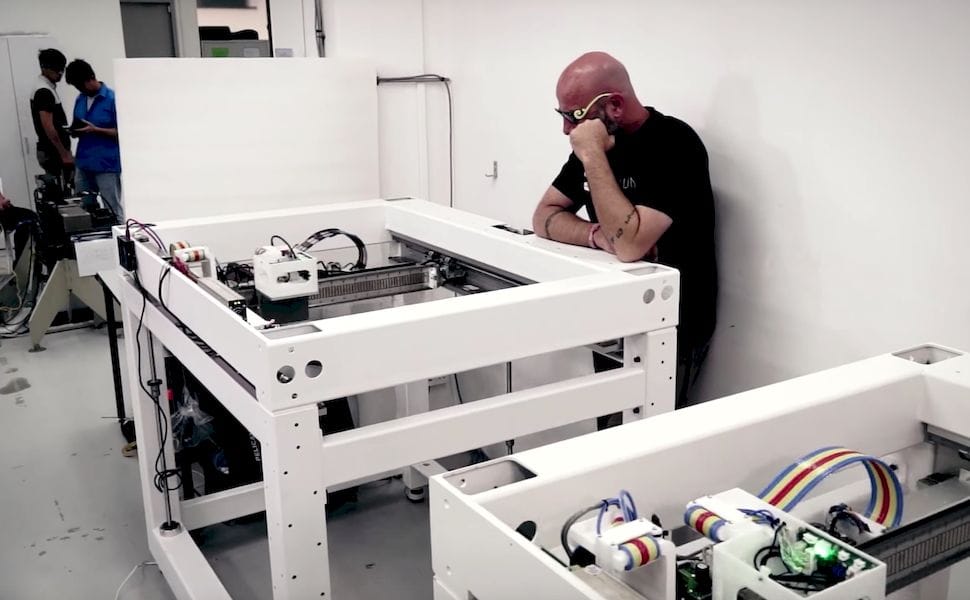
There could be more mysteries to the already mysterious Essentium HSE 3D printer.
This unreleased 3D printer is touted to be extremely fast, yet uses the familiar plastic extrusion process, which has numerous challenges to increase the speed of processing.
So how do they do it? They don’t really explain at all on their website, nor when we spoke to them in person. Thus everything is speculation. Our previous story on this machine attracted a very interesting comment from reader Ben Reytblat of 3DMonstr, who writes:
There’s another interesting thing in these pictures: the X & Y axis appear to be driven by linear induction motors. If my guess is right, this will be a huge improvement! Much much larger torques (the weight of that NEMA23 extruder motor won’t be any trouble at all), much faster speeds, almost no hysteresis, far simpler mechanics. This is similar to the Cinci-Milacron BAAM machine, but at a smaller more manageable scale. Hmmmmmm, perhaps I’ll look into that for our future machines….
If you’re not familiar, a linear induction motor is a rather different type of motor. Instead of operating by rotating, the attractive force is applied along a line, much like taking an electric motor and “unrolling it” along a straight path.
This type of motor has few current applications compared to other motors, and is used in, for example monorails. The linear induction motor also levitates the rail cars above the track, lowering friction.
But as far as I know this has not been attempted in a 3D printer, and it’s definitely not clear at all whether Essentium has done so, aside from some intriguing images from their video. But there must be a reason for their claim of increased speed, and perhaps it’s due to inclusion of linear induction motors.
There’s very little information on use of this concept in 3D printer designs, aside from a long thread in the RepRap forum from a few years ago. But in that thread, a wise commenter said:
Any person with a grain of critical thinking would conclude there would be good reasons why not a single working RepRap 3D printer using linear motors has been built in the last 7 years.
That’s often a signal that should be carefully considered, because it’s a big world and there are more than likely several groups already working on any idea you might come up with.
Based on the remainder of the RepRap discussion, it would seem use of linear induction motors would be quite challenging, particularly related to accurate positioning, a significant requirement for any 3D printer.
Could it be that Essentium has developed a positioning solution for a linear induction motor? I don’t know, but I’d be very interested to find out.

